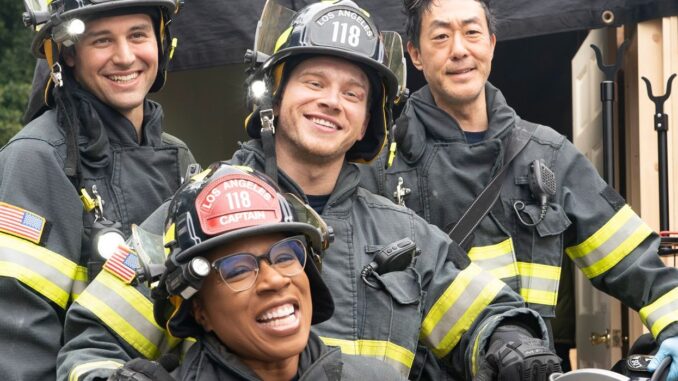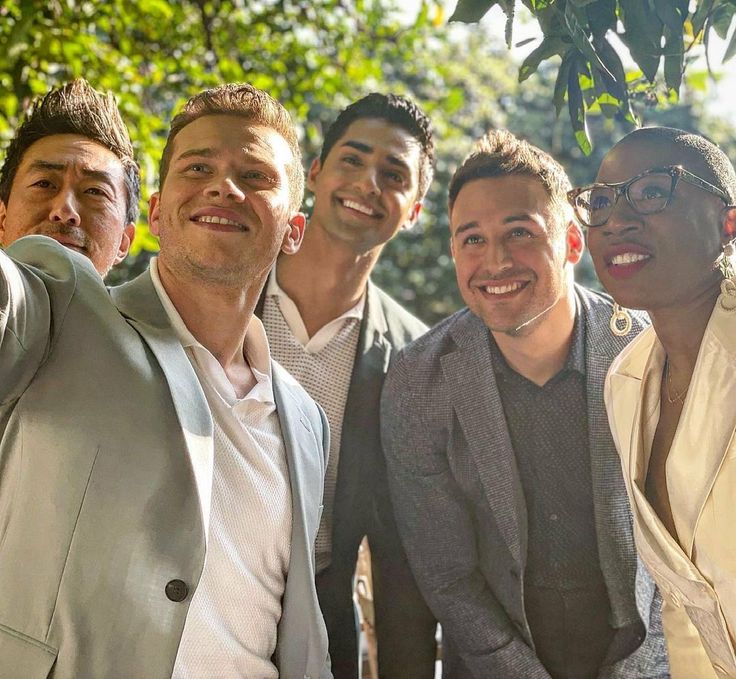
Why This 9-1-1 Spinoff Feels Too Real for East Tennesseans
If you’re reading this, chances are you’ve already heard about the new 9-1-1 spinoff—it’s got folks here in Tennessee buzzing, and not in a good way. I mean, call it deja-vu or a twisted reality check, but I can’t shake this uneasy feeling every time I see a promo or read a headline about the show. Let me walk you through why this isn’t just entertainment—it’s triggering something deeper.
Hometown Heroics Gone Awry
When Fiction Mirrors Reality
Growing up in Nashville—or anywhere in Tennessee—you know how tight-knit our communities are. When you watch disaster dramas set against that backdrop, it hits differently. This new spinoff… it looks polished, sure. But there’s a sharp edge that cuts close to home.
Familiar Scenes, Unsettling Truths
Picture a serene smoky mountain morning disrupted by disaster. A TV show can dramatize that—and it does, so darn well in this spinoff. But add in the local accents, landmarks, and that Southern charm, and suddenly it’s not a fictional scenario—it’s a what-if that makes your stomach twist.
The Weight of Real Lives Wanting Rescue
Emergency Callers Aren’t Just Characters
On 9-1-1, those frantic calls we hear? In Tennessee, that could be your neighbor, your cousin, that kind old lady down the street. Real people doing real jobs with real heart. When the spinoff glosses over the emotional fallout and shows just explosions and heroics, it doesn’t reflect the full truth—trauma, PTSD, grief, and all.
They Turn Trauma into Ratings
It’s Hollywood, sure—they need tension and high stakes. But when your mental health is on the line, when emergency services are understaffed, when someone rings that bell in real life… watching a hyper-dramatic version makes you feel unheard. Like your trauma got turned into ratings.
Community Response—Why We’re Speaking Up
It’s Not Just Me—It’s a Worry Shared
Ask other Tennesseans I’ve talked to—they get it. The sudden flurry of social media posts, emails to local news, comments on forums… people are worried this portrayal reinforces negative stereotypes: dangerous rural settings, overwhelmed small-town first responders, chaos disguised as drama.
Don’t Misrepresent Us
We don’t need our home turned into burning wreckage for entertainment. Tennessee is more than sirens and emergencies. We’re music, volunteerism, grit, tradition. We deserve better nuance.
Compared to the typical settings of Los Angeles and New York City, there aren’t a ton of television shows based in Nashville, Tennessee, the heart of country music in the United States. The most well-known series that takes place in Music City is the appropriately-titled Nashville, which aired from 2012 to 2018 and starred Connie Britton and Hayden Panettiere as country music singers. Seven years later, the city is hoping to dominate the network television industry once again with 9-1-1: Nashville, the second spinoff of Ryan Murphy, Brad Fulchuk and Tim Minear’s 9-1-1 franchise.
9-1-1: Nashville follows the success of the Los Angeles-based flagship series, which stars Peter Krause (until his unexpected departure in the eighth season) and Angela Bassett, as well as the recently ended spinoff 9-1-1: Lone Star, based in Austin, Texas. The series was created by Murphy, Minear and Lone Star co-showrunner Rashad Raisani, and, like the other series in the franchise, will follow first responders as they deal with life-threatening emergencies. As exciting as it is to get a series based in a diverse city full of culture and a rich history, there are some roadblocks that will likely prevent the show from representing the city in its truest form.
9-1-1: Nashville Has a Diversity Problem (So Far). The reaction to Nashville being the setting of the 9-1-1 spinoff has been mixed, both from residents of the city and those who live outside of it. Many people were disappointed that it’s another Southern setting instead of a geographical area that the franchise hasn’t hit yet, which is valid. Those who’ve lived in the Nashville or surrounding area all their lives are thrilled to see it depicted in one of the biggest network franchises right now, but also remain apprehensive. Fans of the franchise have already taken to Reddit to cast their predictions on what 9-1-1: Nashville will look like.
There are a couple of things to dissect here, the first being that “redneck” is considered a derogatory term based on the stereotype of uneducated, white rural Southerners who lack sophistication. In reality, the term originated in a couple of different places: the sunburned necks of lower and working-class farmers and laborers who worked outdoors, and coal miners who wore red bandannas around their necks while fighting for their right to unionize. Secondly, what’s wrong with a Dolly Parton cameo? She’s one of the sweetest humans on Earth who has done nothing but produce great music and support LGBTQ+ and women’s rights, and that’s only touching the surface of her activism. No one seemed to complain when 9-1-1 did a crossover with The Bachelor.
That was only one comment, posted six months ago when the show was announced and prior to casting news. Since then, eight cast members have been revealed: Chris O’Donnell, Jessica Capshaw, Hailey Kilgore, Michael Provost, Juani Feliz, Hunter McVey, LeAnn Rimes and Kimberly Williams-Paisley. Out of the eight actors, only two of them are people of color (Hailey Kilgore and Juani Feliz). So far, this isn’t an entirely fair representation of the city and Tennessee’s population. In actuality, it seems like an outsider’s assumption that most Southern cities are made up of white people and should be “accurately” depicted as such. While it’s true that Nashville’s population is 56.51% white as of 2025, making them the majority, that mindset still disregards the large Black and Hispanic population in the city.

This isn’t exactly a new problem with 9-1-1. The flagship series remains incredibly diverse and features a Black woman as its now singular protagonist. Lone Star also had a well-rounded, diverse cast, but it would’ve been the perfect opportunity to feature a woman, a person of color, a member of the LGBTQ+ community (or all of the above!) as the lead. So it’s disappointing to hear that the lead of 9-1-1: Nashville is, yet again, a white man who is married to a white woman.
Nothing against O’Donnell or Capshaw, who are both fantastic actors, but why is the 9-1-1 franchise so allergic to a minority being the protagonist in its spinoffs? Pushing POCs and possibly LGBTQ+ characters into the supporting roles, while emphasizing the white family, only gives into the stereotypes that people already assume about the city. It also ignores the contributions of Black and Hispanic people in the past and present that have made the city a thriving community.
